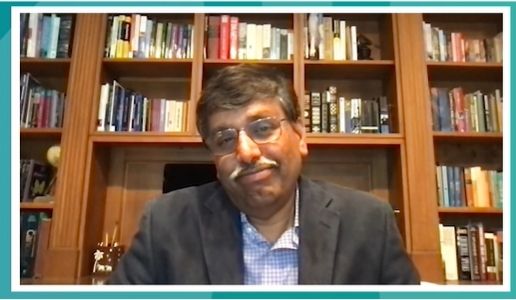2021 Annual Scientific Meeting Highlights
With a theme of ‘Equity and Innovation in Multidisciplinary Lung Cancer Care’, the ASM21 program featured diverse topics designed to appeal to the multidisciplinary audience. Up to 234 registrants viewed the live, virtual program throughout the two days, cementing the TOGA ASM as one the highlights in the thoracic cancer event calendar.
International guest speaker, Prof Pan-Chyr Yang from National Taiwan University College of Medicine, presented on the TALENT study, a lung cancer screening study in a Taiwanese non-smoking population with either a family history of lung adenocarcinoma, environmental exposure to tobacco or cooking fumes, or chronic lung disease. The TALENT study detected a positive rate for lung cancer of 2.6%. Significantly, this study identified a family history as a strong predictive factor for lung cancer, and raises the question whether we should consider lung cancer screening in populations other than heavy smokers?

Prof Ramaswamy Govindan presenting on the potential of proteogenomics in lung cancer treatment pathways
Prof Ramaswamy Govindan, Chair in Medical Oncology and the Director of Section of Medical Oncology at Washington University School of Medicine, presented an insight into the potential of proteogenomics to predict lung cancer treatment pathways. The last decade of advances in lung cancer treatment have relied predominantly on the identification of genomic alterations to identify druggable targets. Proteogenomics uses a combination of proteomics, genomics and transcriptomics to identify peptides, and can profile translated proteins, their phosphorylation status and the immune landscape, potentially identifying biomarkers, drug resistance mechanisms, disease or host heterogeneity, and any alterations in tumours derived from the metastatic site. Proteogenomics has already led to a Phase II clinical trial in lung cancer using personalised vaccines comprised of neo-antigens that are designed to stimulate a uniquely tailored personal immune response.
Prof Jay M Lee, Surgical Director, UCLA Santa Monica Medical Center, USA, gave a comprehensive presentation drawing together the current evidence for both neoadjuvant (NA) immunotherapy and NA targeted therapy. While NA immunotherapy or targeted therapy have shown promising results in Stage I-III NSCLC patients, a limitation of many of these studies is the use of major pathological response as an endpoint. In order to change practice, longer follow up of the NA clinical trials is required to demonstrate efficacy with standard clinical endpoints such as event-free survival. Moreover, specific biomarkers are needed to identify the patients that will benefit most from NA therapy.
Other highlights included:
- A/Prof Shankar Siva presenting on SABR in oligometastatic disease
- Updates in precision medicine and TOGA clinical trials led by Prof Nick Pavlakis
- A debate featuring Dr Melissa Moore and A/Prof Jaclyn Yoong presenting ‘Are two immunotherapies better than one in first line lung cancer treatment?’
- Gaps and inequities in lung cancer care, featuring health economist and Director of the Nossal Institute Prof Barbara McPake
- Immunotherapy in mesothelioma and TOGA’s DREAM3R trial presented by Prof Anna Nowak
- A session dedicated to practical tools for implementing best practice care and embedding research in lung cancer
- Multidisciplinary Masterclass
- Membership updates, oral abstracts session and TOGA scientific committee meeting
Read about more upcoming events in the TOGA education calendar and plans for ASM22. General enquiries for these events can be directed to info@thoraciconcology.org.au or find more information about our Education Program.
